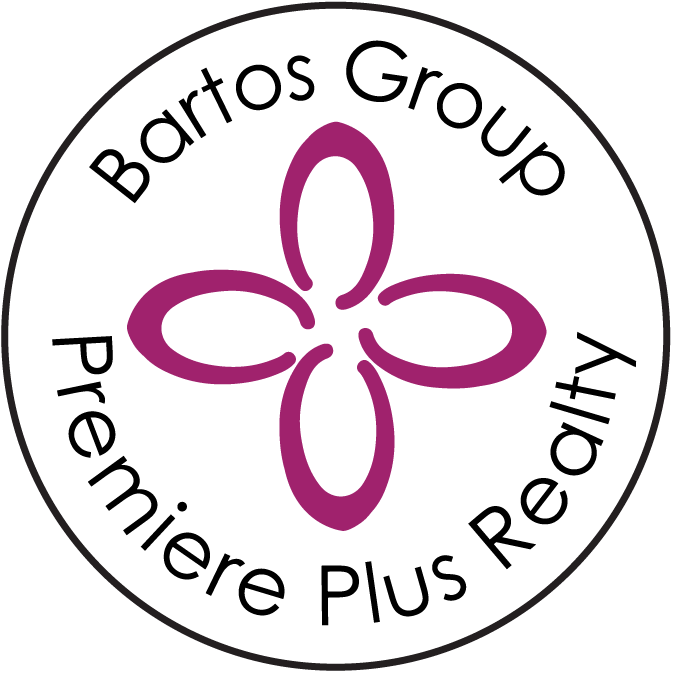
In this blog, Mary Bartos and Jillian Young unpack how a real estate agent can earn six figures or more by joining a high-performance team inside a supportive brokerage. The conversation focuses on the practical advantages of team-based models, why Premiere Plus Realty has become a powerful option in Southwest Florida, and what a motivated real estate agent should look for when exploring a switch. This article distills the key insights, offers actionable takeaways, and answers common questions agents have when considering a team versus running independently.
Why a Team—Not a Small Brokerage—Can Make More Sense for Many Agents
Mary explains a central dilemma: many high-performing groups resemble brokerages but remain teams. For a real estate agent deciding whether to lead a brokerage or plug into an established one, cost-benefit and hassle are the primary considerations. Premiere Plus Realty—home to roughly 1,500 agents and 300 referral partners—delivers big-company resources without the overhead and regulatory headaches that come from operating a standalone brokerage.
For a real estate agent, that means fewer administrative burdens and more time selling. The presenters emphasize that when transaction counts drop but prices hold steady, the take-home commission for many agents shrinks unless they have systems and support to sustain productivity. Joining a team can be an effective way to protect and grow income during tighter market periods.
Key quote
“We love to take care of the things that you don’t want to take care of so that you can do what it is that you are uniquely gifted to do.” — Jillian Young
Proven Numbers: Why Metrics Matter
Numbers tell the story. Premiere Plus Realty ranks 88th in the country for transaction sides and sits in the top 150 for sales volume nationally. For a real estate agent, being affiliated with a company that competes alongside national brands adds credibility and scale. Mary notes that these rankings put the brokerage in contention with markets like New York, California, and Seattle—an impressive position for a regional player in Southwest Florida.
Concrete results matter. The Bartos Group cited helping over 500 families in a recent year and maintaining consistent double-digit growth. For a real estate agent evaluating options, these metrics indicate a company that can generate leads, close deals, and deliver repeatable revenue opportunities.
“Business in a Box”: Services That Let a Real Estate Agent Focus on Sales
Jillian and Mary describe a “business in a box” model. For the real estate agent, this includes:
- Comprehensive transaction management from contract to close
- Listing and showing coordination so agents don’t schedule their own appointments
- Client-facing call support from 8 AM to 9 PM, seven days a week
- Marketing support, compliance oversight, and administrative infrastructure
These services are presented as fractional ownership of high-level resources—an affordable way for a real estate agent to access chief-level technology, compliance, and marketing capabilities without bearing the full expense. Mary and Jillian point out that teams at scale can pool resources to hire a chief technology officer or other specialists, giving every agent access to tools usually reserved for large national franchises.
Financial Outcomes: What a Real Estate Agent Can Expect
Mary and Jillian highlight that most agents at Premiere Plus earn meaningful incomes: many agents make over $100,000, and some range from $500,000 to $1,000,000 in sales. For a real estate agent, that translates into substantial take-home pay, especially within a 100% commission model where the brokerage collects a modest fee for services rather than a large split.
They stress an important distinction: a real estate agent should evaluate splits against services received. Giving a split without tangible services makes little sense. When a team or brokerage provides wraparound support—lead generation, showing coordination, transaction management—the split becomes an investment in business capacity, not just a fee.
How teams boost productivity
A recent study discussed during the conversation showed that agents operating within split-team models often generate higher sales volume per agent. Mary and Jillian corroborate this with their experience: accountability, shared systems, and dedicated support increase productivity. For the real estate agent who struggles with “spinning plates”—sourcing leads, marketing listings, closing deals, and managing back-office work—a team reduces friction and increases capacity.
Compliance and Culture: Protecting the Real Estate Agent and the Brand
Jillian calls the brokerage “compliance nerds.” For a real estate agent, strong compliance means fewer legal exposures, more consistent ethical behavior, and a reputation that remains above reproach. The brokerage emphasizes:
- Active compliance oversight
- Education and enforcement to prevent risky behavior
- Clear values: fairness, integrity, legal and ethical conduct
When markets tighten and pressure increases, so does the temptation for poor decisions. Having team leaders and a compliance-first culture helps a real estate agent avoid costly mistakes—and maintains client trust.
Who Thrives on a Team vs. Who Should Fly Solo
Not every real estate agent wants the same environment. The presenters outline typical profiles:
- Thrives as a solo agent: people who enjoy full control, high autonomy, and building every aspect of a business from scratch.
- Thrives on a team: agents who prefer accountability, structured leads, marketing support, and operational backup to scale quickly.
Mary stresses that the choice is personality-driven. Some agents want to run a boutique, while others want the horsepower of a team. For agents wondering which path is right, the key question is: does the real estate agent prefer to spend time on income-producing activities or on the administrative tasks that support those activities?
Practical Checklist: What a Real Estate Agent Should Ask Before Joining a Team
When evaluating a team or brokerage, a real estate agent should ask:
- What precise services are included for the commission or fee? (transaction management, marketing, showing coordination)
- How are leads generated and distributed?
- What are the compliance and risk-management processes?
- What training, mentorship, and accountability structures exist?
- How and when are commissions paid?
- What are the documented results and metrics (transaction sides, sales volume, agent income distribution)?
These questions help the real estate agent understand whether the value delivered aligns with the cost of participation. Asking for data—average agent income, time-to-first-deal, and retention rates—will separate strong teams from weak ones.
Conclusion: A Strategic Path to Six Figures for the Real Estate Agent
Mary Bartos and Jillian Young present a simple premise: a real estate agent who wants growth, stability, and a cleaner path to higher income should seriously consider joining the right team within a well-resourced brokerage. Premiere Plus Realty’s rankings, service model, and compliance-first culture show how a regional brokerage can offer national-level advantages. For agents feeling squeezed by a market with steady prices but fewer transactions, joining a team that supplies leads, marketing, and operational execution can preserve and grow take-home commissions.
FAQ
How does a real estate agent know if a team is right for them?
A real estate agent should evaluate personal work style, appetite for autonomy, and whether administrative tasks limit selling time. If back-office work keeps an agent from prospecting and closing, a team could be the better path.
Will a real estate agent lose income by joining a team?
Not necessarily. While teams often involve splits or fees, the additional services—lead generation, marketing, showings, transaction management—can increase closed deals and net income. Many agents on well-structured teams report higher take-home pay.
What should a real estate agent ask about compliance?
Ask about oversight practices, training frequency, how errors and omissions are handled, and examples of how the brokerage prevents common mistakes. For a real estate agent, strong compliance reduces legal risk and reputational harm.
Do teams help new and experienced real estate agents equally?
Yes, but in different ways. New agents gain mentorship and process; experienced agents gain scale and delegation. Both types of real estate agent can benefit from the right team structure.
What metrics should a real estate agent request from a team?
Transaction sides, average sales volume per agent, retention rates, time from lead to close, and average commission payout. These figures help a real estate agent forecast potential earnings.
How quickly can a real estate agent expect to see results on a team?
It varies. Agents who actively leverage team leads and support often see accelerated results within months. Those who rely solely on personal prospecting will take longer. A realistic expectation helps the real estate agent measure fit and progress.
Mary Bartos and Jillian Young invite any real estate agent interested in learning more to reach out and explore whether their team or the broader brokerage fits their goals. For agents focused on building revenue, protecting reputation, and scaling a business without taking on all the overhead, a team inside a strong brokerage can be the strategic move that turns ambition into six-figure reality.
Contact Us Today! |
|
Providing you the experience you deserve! |
| Click me |
